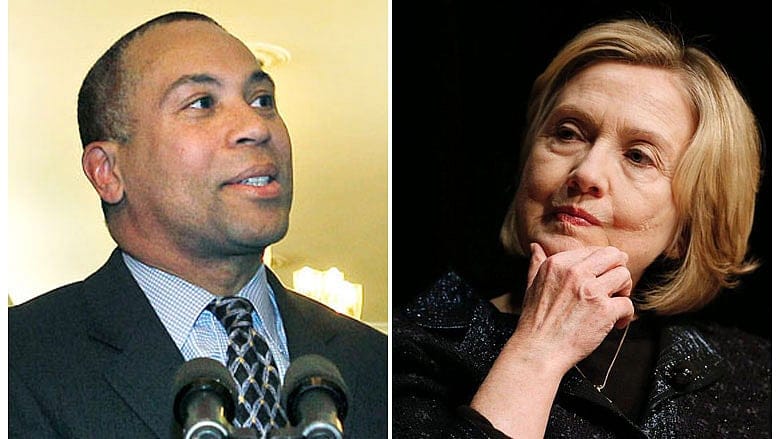Why Clinton will choose Deval Patrick as vice president

As "Bern Baby Bern" — like all good socialist-themed endeavors – slowly and inevitably finds itself reduced to a simmering ash heap out of a once flourishing flame, the Clinton campaign has now methodically and understandably begun the process of vetting vice presidential candidates for the Democratic ticket. Hillary Clinton will choose former Massachusetts Gov. Deval Patrick.
This past Sunday The New York Times – which said the nomination fight is "still fluid" (for the Democrats, it isn't) – reported that Clinton is considering between 15 and 20 potential running mates. In addition to Patrick, the Times suggests, wishfully, that Massachusetts Senator Elizabeth Warren is also among the contenders.

